 Photo: One of Philip Guston's lightbulb drawings. As a child, Guston used to hide in his closet and draw pictures. Doing so calmed him and made him happy. The lightbulb image is a manifestation from his closet. He replicated the lightbulb image in several paintings and drawings throughout his lifetime.
Photo: One of Philip Guston's lightbulb drawings. As a child, Guston used to hide in his closet and draw pictures. Doing so calmed him and made him happy. The lightbulb image is a manifestation from his closet. He replicated the lightbulb image in several paintings and drawings throughout his lifetime.Christmas Vacation is always a great time for teachers to get caught up on their reading. I have started Herzog by Saul Bellow. I finished Cormac McCarthy's The Road in one long evening, and it was excellent: eloquent, disturbing, and archetypal. The plot is very simple: a man and his son try to survive after an apocalyptic disaster. I love the stripped down mechanism by which McCarthy tells the story. It isn't quite as blunt as Hemingway because McCarthy enjoys the occasional metaphoric flourish, but one could draw parallels to Hemingway's "Big Two-Hearted River" or perhaps even Crane's "Blue Hotel" or "The Open Boat." McCarthy, though, doesn't exactly fit into the framework of realism that Hemingway and Crane do. McCarthy seems to be exploring the advantages and disadvantages of self-sufficiency vs. community.
I also reread one of the texts I'll be using in my seminar next semester, Gregory Orr's Poetry As Survival. Orr experienced a psychic wound as a child when he accidentally killed his brother in a hunting accident.
In Poetry As Survival, Orr writes: "To say that I was horrified and traumatized by the event is only to state the obvious." The point, says Orr, is that his writing got him beyond the horror and the paralysis.
Of course, it isn't enough to have a psychic wound and to write about it--great writing comes about only through a careful and (usually) long apprenticeship, Orr explains.
The first half of Poetry As Survival explains the psychology of writing and healing. Orr's writing is thoughtful and engaging. He has the ability to explain complex concepts in a way that is easy for the reader to understand. For instance, in explaining the "self," Orr writes: "The self, in my image, is like a tiny island in a vast sea of chaos, and it's also like those conch shells you lift to your ear to hear the ocean's roar: the chaos of the sea is inside the self also."
Throughout, Orr seeks to explain how writing can give order to the seemingly chaotic life.
The second half of the book deals with writers of the personal lyric, focusing on early practitioners like Blake, Wordsworth, and Whitman. In addition, Orr writes of several poets as being his "heroes." In doing so, amazingly, he humanizes them, makes them real people rather than the marble statues they seem to be in poetry anthologies.
Other poets Orr discusses are: Plath, Roethke, Dickinson, Keats, and Wilfred Owen.
One of my favorite revelations in the book was Orr's brief discussion of the Polish poet Tadeusz Rozewicz, whose "In the Middle of Life" portrays, in Orr's words, "a shell-shocked, traumatized veteran who must relearn everything from scratch and through elementary incantatory repetitions." Here is a selection from Rozewicz's poem:
After the end of the world
after my death
I found myself in the middle of life
I created myself
constructed life
people animals landscapes
this is a table I was saying
this is a table
on the table are lying bread a knife
the knife serves to cut the bread
people nourish themselves with bread
one should love man
I was learning by night and day
what one should love
I answered man
this is a window I was saying
this is a window
beyond the window is a garden
in the garden I see an apple tree
the apple tree blossoms
the blossoms fall off
the fruits take form
they ripen my father is picking up an apple
that man who is picking up an apple
is my father
I was sitting on the threshold of the house
that old woman who
is pulling a goat on a rope
is more necessary
and more precious
than the seven wonders of the world
whoever thinks and feels
that she is not necessary
he is guilty of genocide ...
It is intriguing how that last stanza has parallels to McCarthy's The Road. The great battle in The Road is how to keep your humanity in the face of overwhelming loss, fear, and senseless killing. The Road is not a Science Fiction tale: it really is a book about how we deal with life every day, the extent to which we allow ourselves to become genocidal in our thoughts--whoever thinks and feels/that she is not necessary/he is guilty of genocide. So it shouldn't be surprising that Rozewicz's poetry and McCarthy's book would say some of the same things: Rozewicz was writing in the aftermath of WWII horrors.
One of the reasons I want to do the seminar is because courses in literary criticism erase from consideration the writer's original and personal motivations for writing. I do think literary criticism is important, but there needs to be balance. Too often, I think, works are treated as cadavers, opened and probed objectively on a slab.
Orr, in contrast, brings poets and their poems fully alive. The experience of reading this book was thoroughly rewarding. Gregory Orr's Poetry As Survival is a great companion to DeSalvo's Writing as a Way of Healing: How Telling Our Stories Transforms Our Lives.
By the way, if anyone runs across a poetry collection by Tadeusz Rozewicz, I'd appreciate knowing about it. I would love to read more of his work.
I also reread one of the texts I'll be using in my seminar next semester, Gregory Orr's Poetry As Survival. Orr experienced a psychic wound as a child when he accidentally killed his brother in a hunting accident.
In Poetry As Survival, Orr writes: "To say that I was horrified and traumatized by the event is only to state the obvious." The point, says Orr, is that his writing got him beyond the horror and the paralysis.
Of course, it isn't enough to have a psychic wound and to write about it--great writing comes about only through a careful and (usually) long apprenticeship, Orr explains.
The first half of Poetry As Survival explains the psychology of writing and healing. Orr's writing is thoughtful and engaging. He has the ability to explain complex concepts in a way that is easy for the reader to understand. For instance, in explaining the "self," Orr writes: "The self, in my image, is like a tiny island in a vast sea of chaos, and it's also like those conch shells you lift to your ear to hear the ocean's roar: the chaos of the sea is inside the self also."
Throughout, Orr seeks to explain how writing can give order to the seemingly chaotic life.
The second half of the book deals with writers of the personal lyric, focusing on early practitioners like Blake, Wordsworth, and Whitman. In addition, Orr writes of several poets as being his "heroes." In doing so, amazingly, he humanizes them, makes them real people rather than the marble statues they seem to be in poetry anthologies.
Other poets Orr discusses are: Plath, Roethke, Dickinson, Keats, and Wilfred Owen.
One of my favorite revelations in the book was Orr's brief discussion of the Polish poet Tadeusz Rozewicz, whose "In the Middle of Life" portrays, in Orr's words, "a shell-shocked, traumatized veteran who must relearn everything from scratch and through elementary incantatory repetitions." Here is a selection from Rozewicz's poem:
After the end of the world
after my death
I found myself in the middle of life
I created myself
constructed life
people animals landscapes
this is a table I was saying
this is a table
on the table are lying bread a knife
the knife serves to cut the bread
people nourish themselves with bread
one should love man
I was learning by night and day
what one should love
I answered man
this is a window I was saying
this is a window
beyond the window is a garden
in the garden I see an apple tree
the apple tree blossoms
the blossoms fall off
the fruits take form
they ripen my father is picking up an apple
that man who is picking up an apple
is my father
I was sitting on the threshold of the house
that old woman who
is pulling a goat on a rope
is more necessary
and more precious
than the seven wonders of the world
whoever thinks and feels
that she is not necessary
he is guilty of genocide ...
It is intriguing how that last stanza has parallels to McCarthy's The Road. The great battle in The Road is how to keep your humanity in the face of overwhelming loss, fear, and senseless killing. The Road is not a Science Fiction tale: it really is a book about how we deal with life every day, the extent to which we allow ourselves to become genocidal in our thoughts--whoever thinks and feels/that she is not necessary/he is guilty of genocide. So it shouldn't be surprising that Rozewicz's poetry and McCarthy's book would say some of the same things: Rozewicz was writing in the aftermath of WWII horrors.
One of the reasons I want to do the seminar is because courses in literary criticism erase from consideration the writer's original and personal motivations for writing. I do think literary criticism is important, but there needs to be balance. Too often, I think, works are treated as cadavers, opened and probed objectively on a slab.
Orr, in contrast, brings poets and their poems fully alive. The experience of reading this book was thoroughly rewarding. Gregory Orr's Poetry As Survival is a great companion to DeSalvo's Writing as a Way of Healing: How Telling Our Stories Transforms Our Lives.
By the way, if anyone runs across a poetry collection by Tadeusz Rozewicz, I'd appreciate knowing about it. I would love to read more of his work.



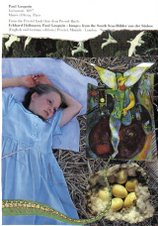


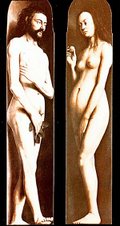

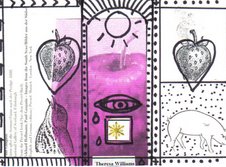
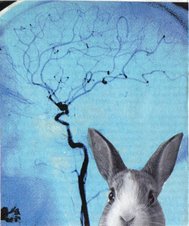
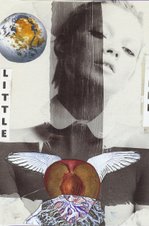
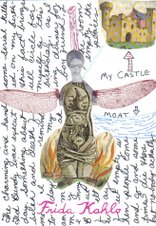
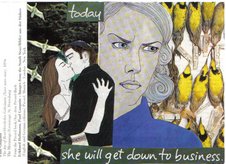

2 comments:
I do love that poem, and I think I might give it a try.
Theresa,
Thank you so much for the Christmas gift! I received it just before I left for my parent's house to celebrate the holiday. It's always a thrill to get things in the mail. :-)
Especially after reading this entry, I'm very excited to dive into POETRY AS SURVIVAL.
Happy New Year!
Erin
Post a Comment